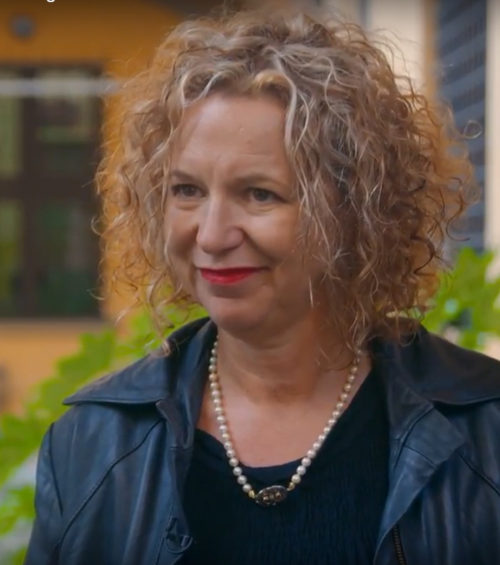Despite the efforts undertaken in Europe, gender inequality is still a widespread phenomenon in Academia and in Research; cultural barriers, disciplinary stereotypes and structural constraints are acknowledged determinants of the imbalance. Gender inequality (in particular in STEM disciplines) and the lack of integration of sex/gender variables in research and teaching can lead to a waste of talents and negatively affect the excellence of an institution.
A cultural change investing, at first, the institutions that train future citizens and drive research, is a precondition for a Society transformation. To pursue this objective, we must undertake a careful fight.
PLOTINA Project (Promoting Gender Balance and Inclusion in Research, Innovation and Training, GA: 666008) has been designed with the intention to sustain this careful fight towards gender equality.
The PLOTINA Consortium exemplifies the heterogeneity of Research Performing Organizations (RPOs) and the diversity of European and extra-European social-cultural environments, encompassing five universities (University of Bologna; University of Warwick; Lisbon School of Economics and Management; Mondragon University; Ozyegin University), one research centre (National Institute of Chemistry), two professional associations (Centro Studi Progetto Donna e Diversity MGMT; Elhuyar-Zubize SLU), one non-profit research organisation (Centre for Social Innovation), and one social enterprise (Elhuyar Fundazioa).
The project, coordinated by the University of Bologna, has an overall duration of 48 months and will be concluded with a public conference in Bologna (January 2020). It aims to develop, implement and assess self-tailored Gender Equality Plans (GEPs) for stimulating a gender-aware cultural change; promoting career-development of researchers, particularly women; ensuring diversification of views and methodologies in research and teaching.
In order to achieve its aims, PLOTINA is articulated in four overall stages: 1) Assessment of the current situation in each RPO (Gender Audit) at institutional or departmental level: 2) Design of a self-tailored GEP for each RPO, to be performed from 2017 to 2020 period; 3) implementation, monitoring and impartial evaluation (peer reviewed) of the GEPs actions efficacy; 4) Creation of a platform of resources that can be used by RPOs across Europe to implement their own GEPs.
Up to now, PLOTINA has performed the first two stages and it is currently undertaking the GEPs implementation and monitoring. During the Gender Audit (first stage), PLOTINA RPOs analysed their institutional contexts to identify the previous actions and the existing challenges on gender issues (organizational culture, teams balance, integration of sex and gender variables in research and teaching). The Consortium also collected best practices on gender equality at the European level. Moreover, PLOTINA partners agreed on the use of a common set of basic concepts (The Plotina Lexicon) including definitions of Gender Equality and Work-Life Balance. The Lexicon has been published on the PLOTINA website and it is constantly being updated.
The Gender Audit procedure was pivotal in outlining a Common Audit Tool that other RPOs can use in their own institutions. The tool is structured around five key areas: 1) Governance bodies, key actors and decision-makers; 2) recruitment, retention and career progression; 3) work-personal life integration and balance; 4) researchers and research: gender equality and sex and gender perspective; 5) integration of sex and gender in study curricula.
Grounding on the insights gained from the Audit Reports, RPOs designed specific GEPs based on the five key areas and suitable to their own context. For each key area, different objectives were identified and exploded into measures. These measures are associated to core or specific indicators aimed at self-assessing the progresses achieved by RPOs through the GEPs actions.
PLOTINA is very committed with the transferability of best practices and, for this reason, the Consortium has planned to create an open access database (the Good Practice database), that will contain the best actions implemented in the GEPs and the case studies developed by partners.
PLOTINA has dedicated a full workpackage (WP4) to the development and the spread of a more gender aware-science. The end goal of WP4 (Implementing GEPs: Gender-aware science) is to develop a Library of Actions, addressing the whole process of scientific knowledge-making, from teaching to research to innovation, devoted to:1) spread in the RPOs’ ambient a gender/sex aware approaches;2) enhance commitment of female scientists: i) as evaluators of research (editors, referees) and ii) as producers of knowledge (researchers) in considering gender/sex analysis in scientific research and publications; 3) include gender/sex approaches in the background of the next generation of researchersby targeting different individuals (BA students, MA students,PhD scholars,senior researchers and research groups, publishers, referees and editors;high-level research management in charge for the internal allocation of research funding within RPOs).
The PLOTINA’s impact on European RPOs is linked with an effective dissemination of its results. This newsletter, as the others to come, has the purpose to share as much as possible the outcomes of our meetings, workshops, deliverables and milestones. By widely disseminating its tools PLOTINA hope to increase the number of RPOs implementing GEPs.
In the medium to long term, the tools (audit tool, self-monitoring system, Library of Actions, Good Practice Guide, Case studies) provided by PLOTINA will be disseminated trough the Project newsletter and its website, with the aim of contributing to the achievement of the European Research Area (ERA) objectives on gender equality, in particular by increasing the number of female researchers, improving their career progression and mobility, thus contributing to research intensity and effectiveness by enhancing diversity of research teams and establishing working cultures that enable individuals to contribute optimally.


